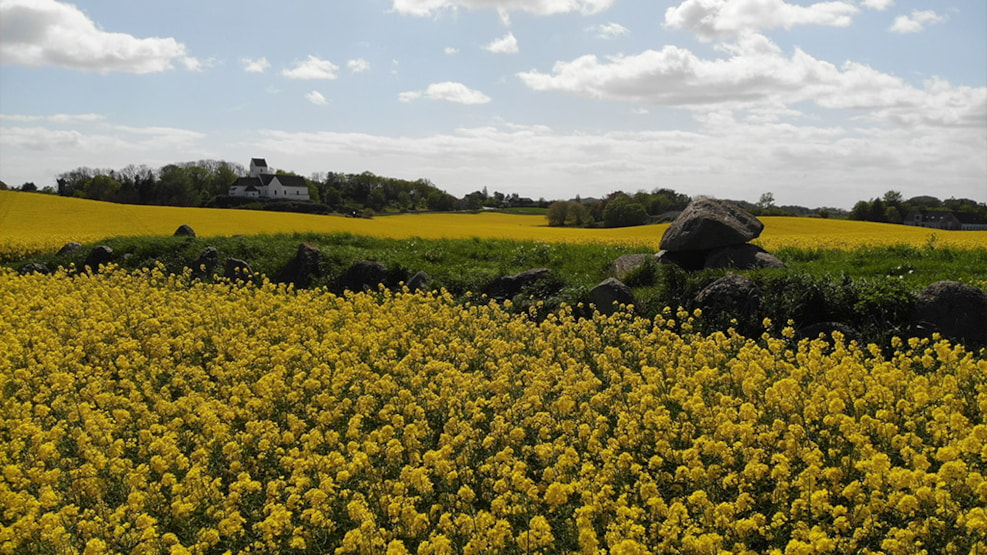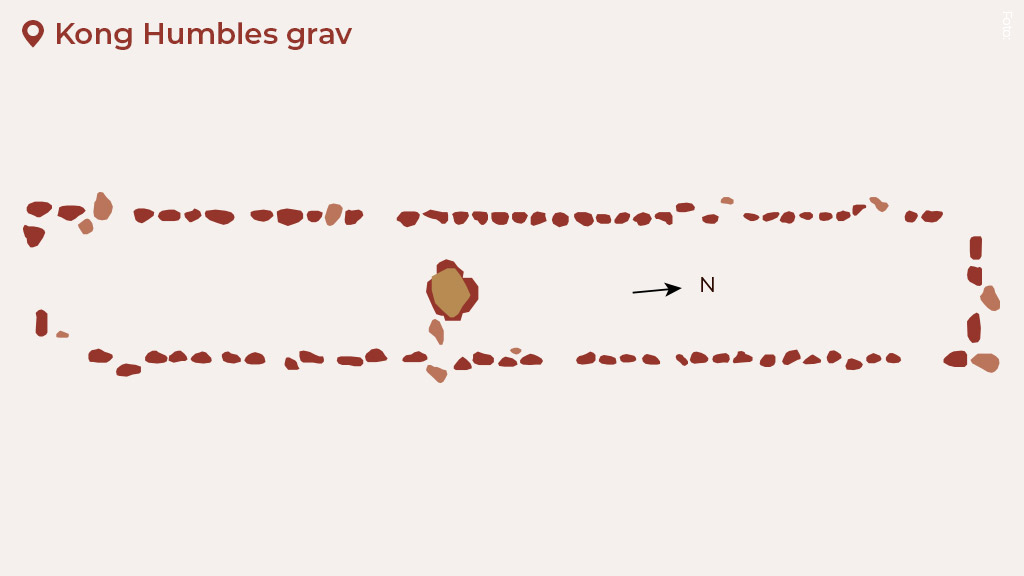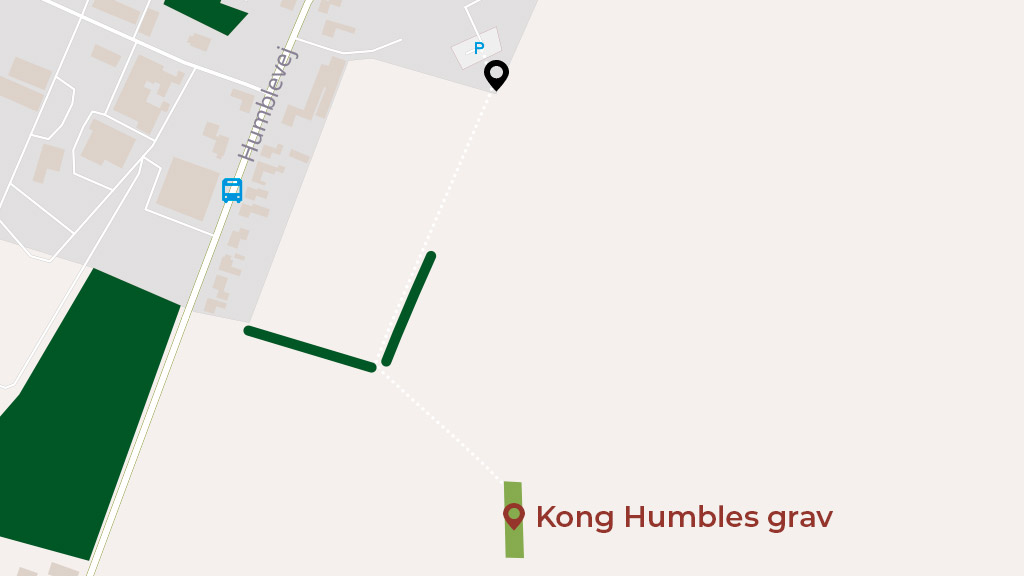
Long dolmen the Grave of King Humble
Impressive 48.5 metre long Stone Age dolmen with 77 kerbstones.
King Humble’s Grave is an exceptionally beautiful and well-preserved long dolmen, with almost all of the kerb stones still standing. It is 48.5 m long and 8 m wide and now consists of 77 large kerb stones and a chamber with three supporting stones and a capstone.

Throughout history, dolmens and passage graves have had to provide stones for the construction of churches, houses and roads. As a result, many have now disappeared completely - in fact, only one in ten megalithic graves are still standing, meaning there must have been more than 25,000 graves in Denmark.
The grave of King Humble came also very close to being removed. In fact, blast holes were made in several of the kerb stones, which you can see as you walk around the dolmen. The destruction was stopped in time by Jens Winther, the founder of Langelands Museum, who also arranged for the dolmen to be registered in 1910 through an agreement with farm owner P. Chr. Jørgensen.
The long dolmens are the oldest of the megalithic graves. The first were built at the same time as the introduction of agriculture in 3800 B.C. The megalithic graves probably had more purposes than just burial. A grave was a prominent monument in a landscape otherwise dominated by forests, bogs and unspoilt nature. There is evidence to suggest that the dolmens also marked the affiliation of families to the area, almost as a kind of deed to the land.
Who was King Humble?
Many of Denmark’s ancient monuments are named after legends who were believed to be buried in the dolmens. King Humble is mentioned in the 13th century as the son of King Dan, who according to legend was the first king of Denmark. However, the connection between this dolmen and the king is somewhat uncertain, apart from the name.

Walk to the Grave of King Humble
Use the footpath across the field to explore the long dolmen. The dolmen is 350 metres from the car park on Humblevej 26B in Kædeby. Be considerate of nature and the crops in the field.
More Hidden Stories
Discover more hidden stories from Langeland at www.govisitlangeland.com/past
The project Langelands Hidden Stories is supported by the Danish Outdoor Council and developed by VisitLangeland and Langelands Museum.